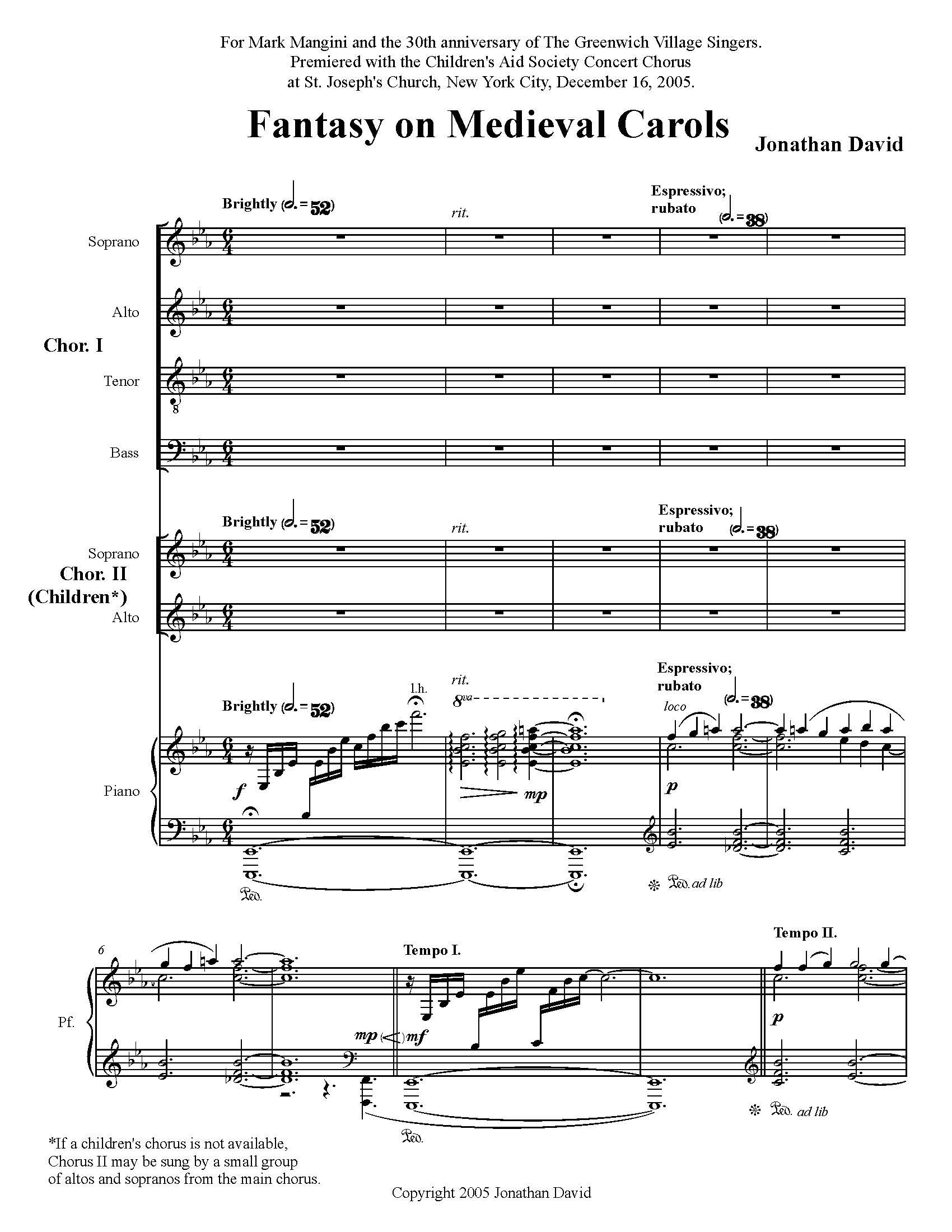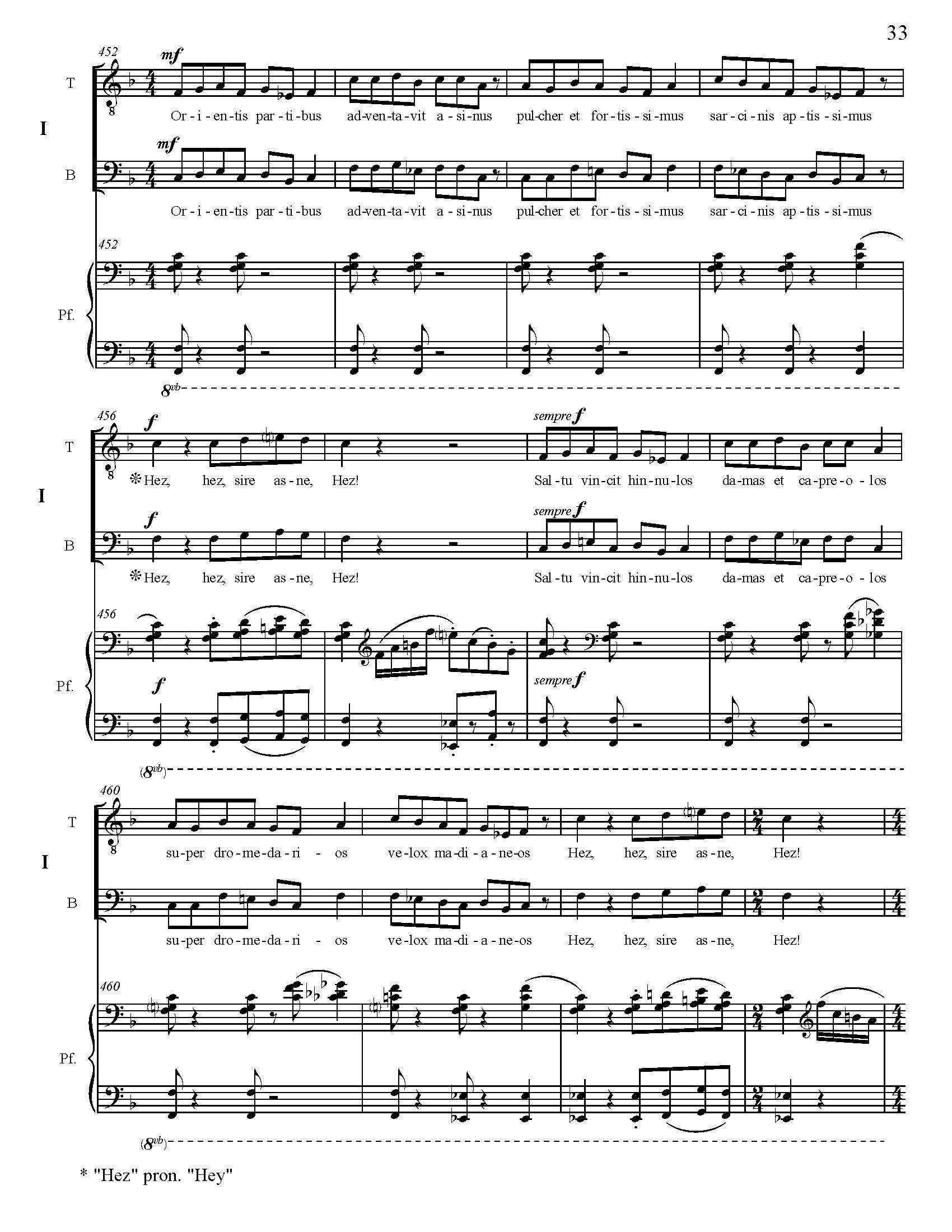Fantasy on Medieval Carols
For SATB chorus, children’s chorus, and piano (2005), 15’30”
Texts: Procedenti Puero; Angelus ad Virginem; Personent Hodie; Ecce Quod Natura; Chester Nuns’ Song; Orientis Partibus; Puer Nobis Nascitur (Latin)
Premiered December 16, 2005, New York, NY; Greenwich Village Singers, Children’s Aid Society Chorus, conducted by Mark Mangini, Walter Hilse, piano.
Program Notes
My Fantasy on Medieval Carols was composed for the 30th anniversary of the Greenwich Village Singers, an ensemble for whom I served as composer-in-residence for several years and sang in the tenor section for longer. The addition of a children’s chorus added a special element to the proceedings.
The Fantasy is a through-composed work consisting of substantial re-imaginings of seven medieval carols, some well-known, others more obscure. I have also made use of the “Hodie” chant, which likewise opens Britten’s Ceremony of Carols, a work of a similar genre, but considerably more ethereal and introverted than mine. The chant is elaborated by the piano to provide introductory and linking material throughout the work.
The celebration of Christmas has long been a synthesis and juxtaposition of the sacred and the profane, and it is that contrast that largely drives the Fantasy. Cross-relations--created when one pitch is followed by or played simultaneously with its chromatic alteration (F and F#)--were common in medieval music and crop up often in the Fantasy. They add a twist to the light dance of the first carol, sung by the children’s chorus to a text that tells of the Immaculate Conception. The next two movements, the annunciation carol “Angelus ad virginem” and the well-known “Personent hodie,” endure raucous and borderline irreverent treatments. The latter closes with a section in which the adult women sing their lines randomly underneath the men and children. The austere “Ecce quod natura,” another “Marian” carol, provides a stark contrast. The juxtaposition is even stronger between the next two movements, the gentle lullaby of the “Chester Nuns’ Song,” sung by women and children only, and the rowdy “Song of the Ass.” From beneath the braying the children emerge with the “Puer nobis nascitur” which closes the piece with unabashed joy.
“…the profundity and beauty of this work [Fantasy on Medieval Carols] signal the appearance of a major new composer who must be regarded as one of the important emerging musical voices of the future.”
- David Swickard , East Hampton Star






